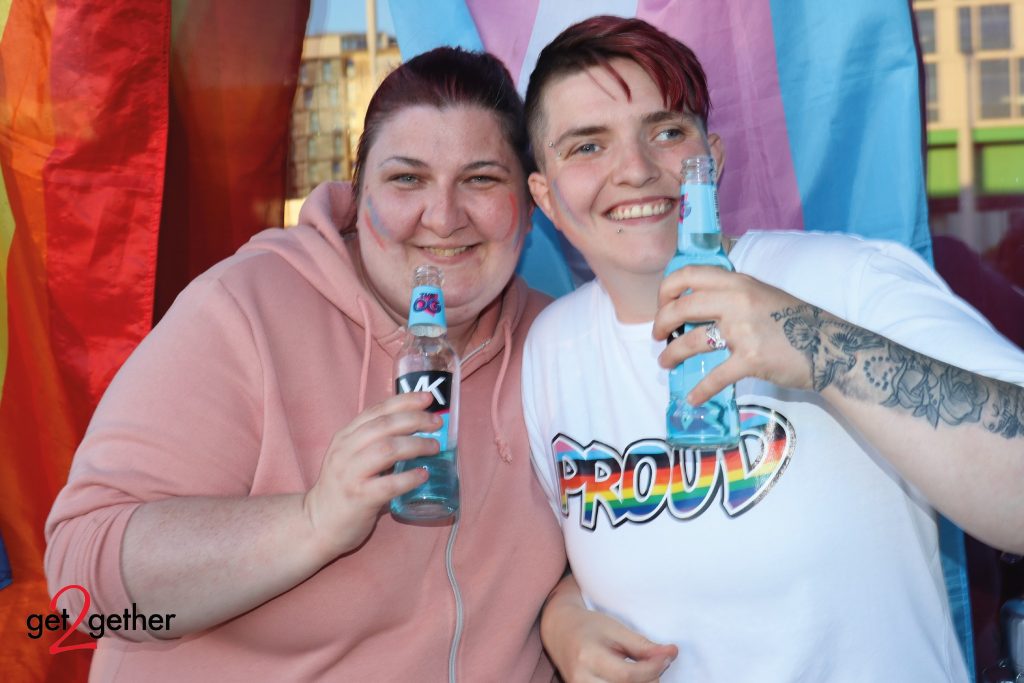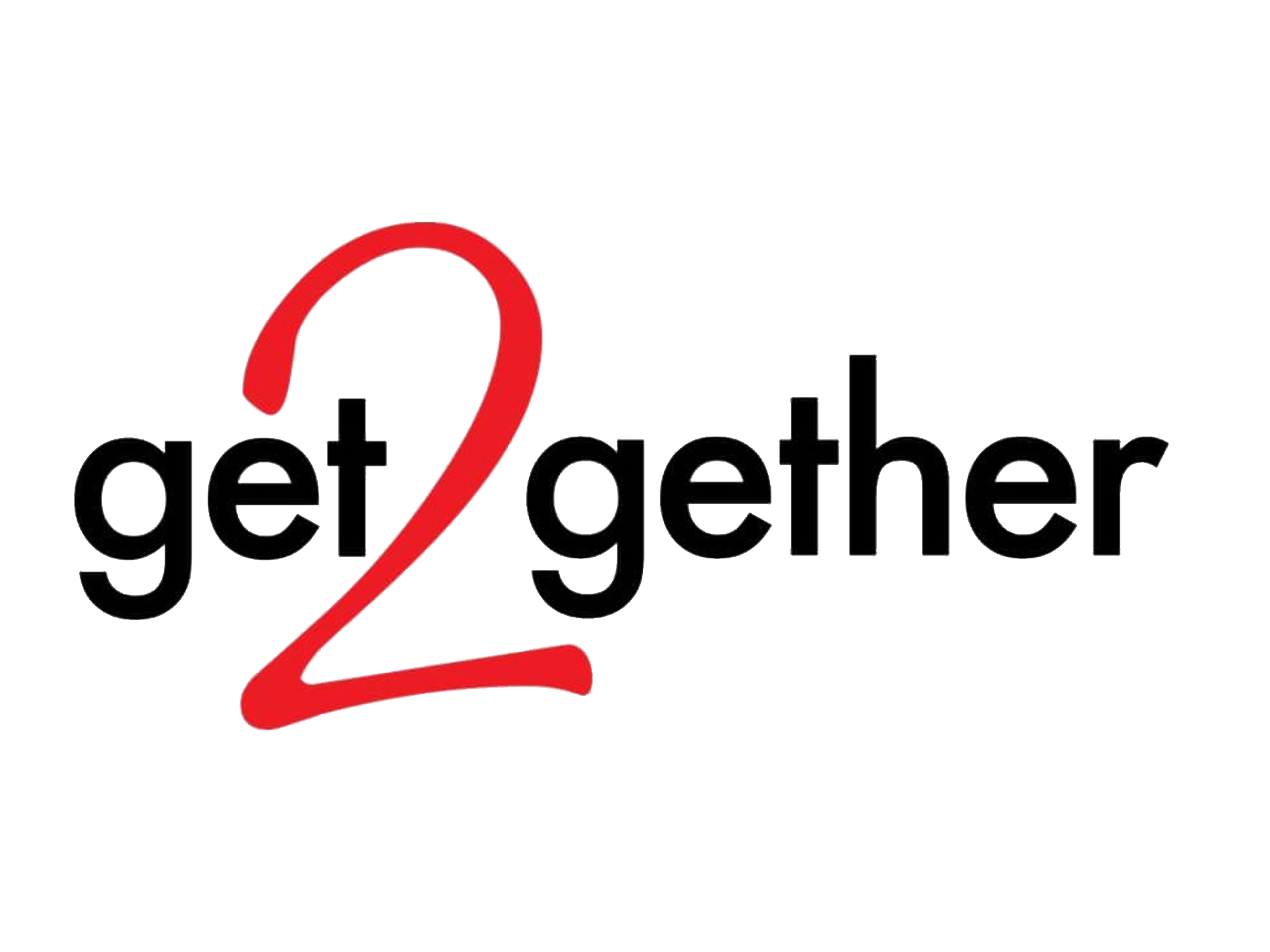June cover story!
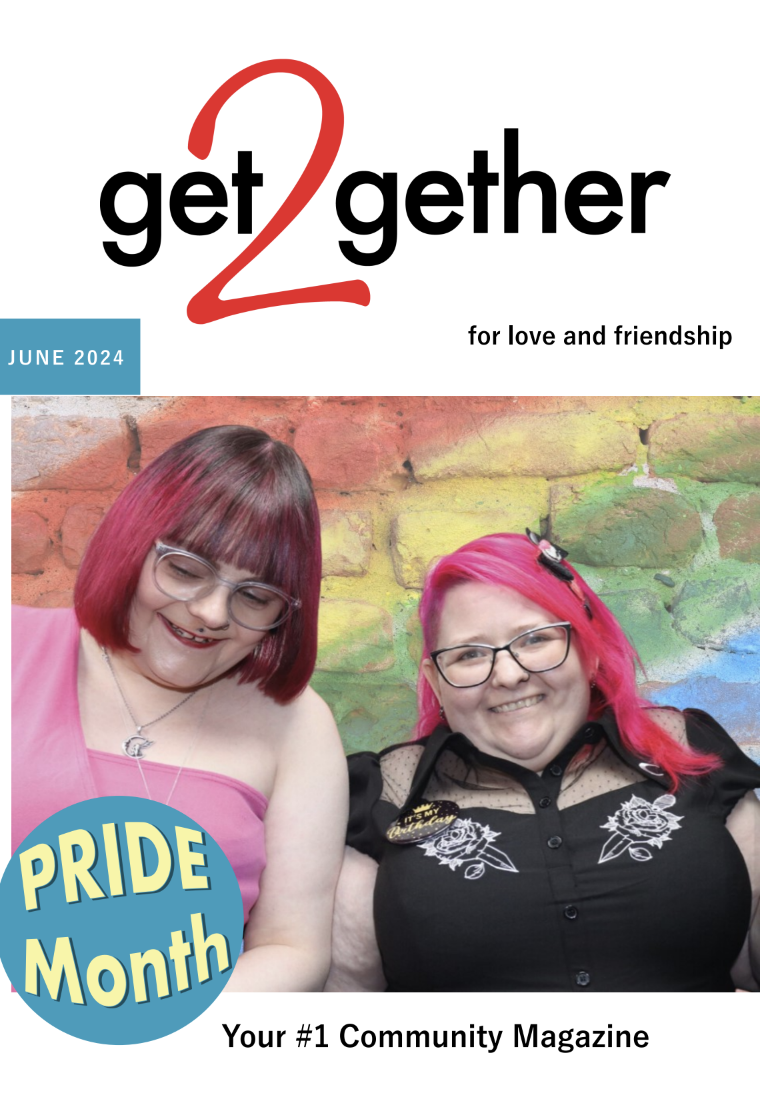
After the Stonewalls Riots in New York in 1969, the first Pride march came in 1970 in New York, 1972 in London and finally 1995 in Edinburgh. Since then marches have spread across the country from Glasgow and Edinburgh up to Inverness and the Highlands.
We at get2gether know that Pride marches are not the only way to celebrate queerness and being part of the LGBTQ+ community. In fact, we know that marches are not the most disability friendly activity and so at get2gether we plan a month of different activities and celebrations. We also recognise that LGBTQ+ identity and Pride cannot be limited to one month a year and we are lucky enough to be funded by EVOC to provide monthly drop in spaces. They range from social spaces in-person to online sessions covering everything from Section 28, Coming out in later life, being Queer & Autistic and Asexuality.
Join us in June for our Big Night Out at Gorgie Social and Pride Breakfast with LGBT Health & Wellbeing. get2gether’s partnership with LGBT Health & Wellbeing is very important to us and we’ve enjoyed working together for the last five years. Jules, LGBT Health & Wellbeing’s Development Worker, says “our joint-working relationship recognises the vital importance of meeting people where they’re at, both in terms of what they need but also who they are. By prioritising safer space for either and both, we aim to create life affirming opportunities for LGBTQ+ disabled people.” Jules and the team look forward to seeing you at Gorgie on the 13th!
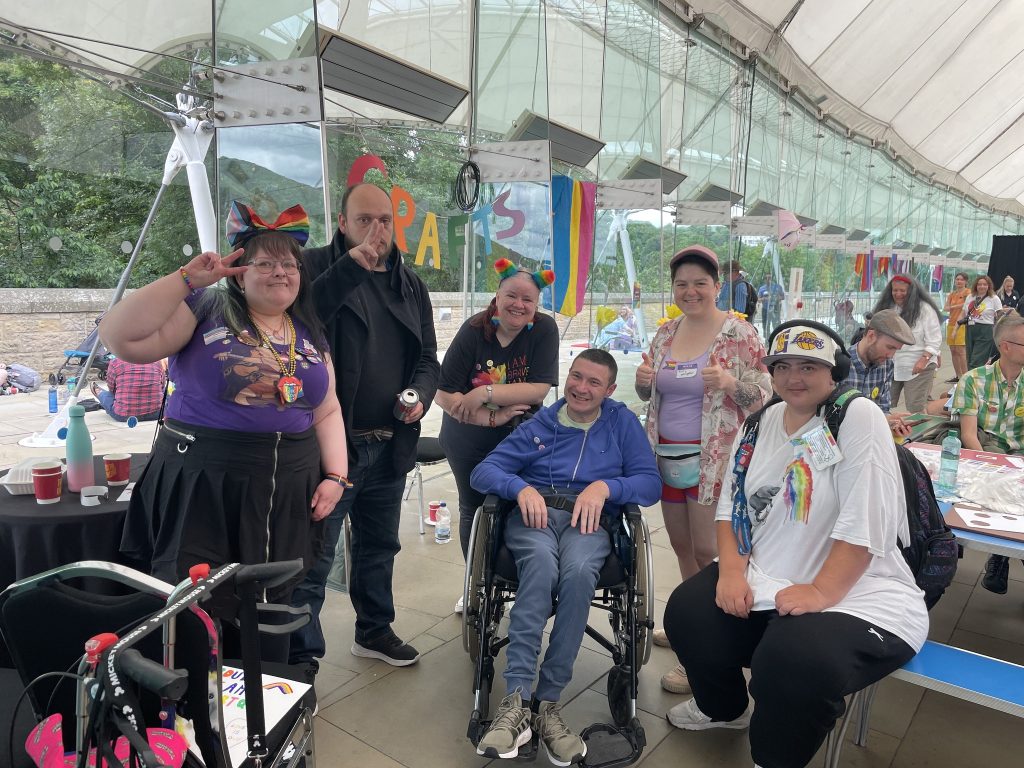
get2gether recognises, and is backed by this study, that gender diverse people and members of the LGBTQ+ community are more likely to be neurodiverse – in some cases, 3 – 6 x more likely. What does this mean? We ask some of our members, including Ambassador Natalie:
Does your sexuality/gender and disability overlap?
Isla: I don’t think my sexuality and gender overlap with my disability. I think it’s just who I am.
Jodi: Absolutely. Both are integral parts of who I am and they affect the decisions I make in daily life. I also feel like there’s a lot of overlap in terms of mindset and knowing what it’s like to be celebrated one minute and discriminated against the next.
Natalie: The more I learn about my brain, the more I learn about myself and my identity so yes.
How can get2gether support you in both?
Isla: I’ve found get2gether to be really trans inclusive. Some places aren’t inclusive even though they claim to be, lots of arguing, people getting on at me because I used the wrong pronouns but at get2gether everyone understands. I’ve made some really good friends.
Jodi: get2gether already do. They provide so many opportunities to discuss all things gender/sexuality and disability with staff, ambassadors and fellow members. Along with safe spaces at every event for those who need breathing space or a relaxed chat. I’m proud to be a member of get2gether because accessibility is at the heart of everything they do.
Natalie: get2gether is the only place I feel comfortable talking about this stuff, very few of my family or friends know. It’s somewhere I feel very safe to bring all of my questions and talk to other people who might have the same thoughts, feelings and questions as I do.
What does accessibility mean to you? What are barriers to events for you?
Isla: Accessibility to me means being able to do the same things other people do but with the adjustments that make it possible for me to do it – like having a support worker come with me. It can be difficult at times because there’s a lot of negativity around trans people at the minute and there’s a lot of places that say that they’re LGBT friendly but they’re not trans friendly. For example they don’t have policies for allowing us in the bathroom.
Jodi: Access is a lot more than being able to enter a building to attend an event, it’s the ability to be present and enjoy the event the same way everyone else is.
Natalie: Accessibility to me means being able to take part in activities and events I enjoy and am interested in without feeling like a burden or that I am ruining it for others. It’s being included and involved in things and just being able to take part without having to worry I won’t understand or won’t be welcome or being disappointed and not able to join when I get there. Barriers to events for me would be places that are loud, bright and busy with no clear escape or quiet area. Also events that use complicated language and aren’t well explained.
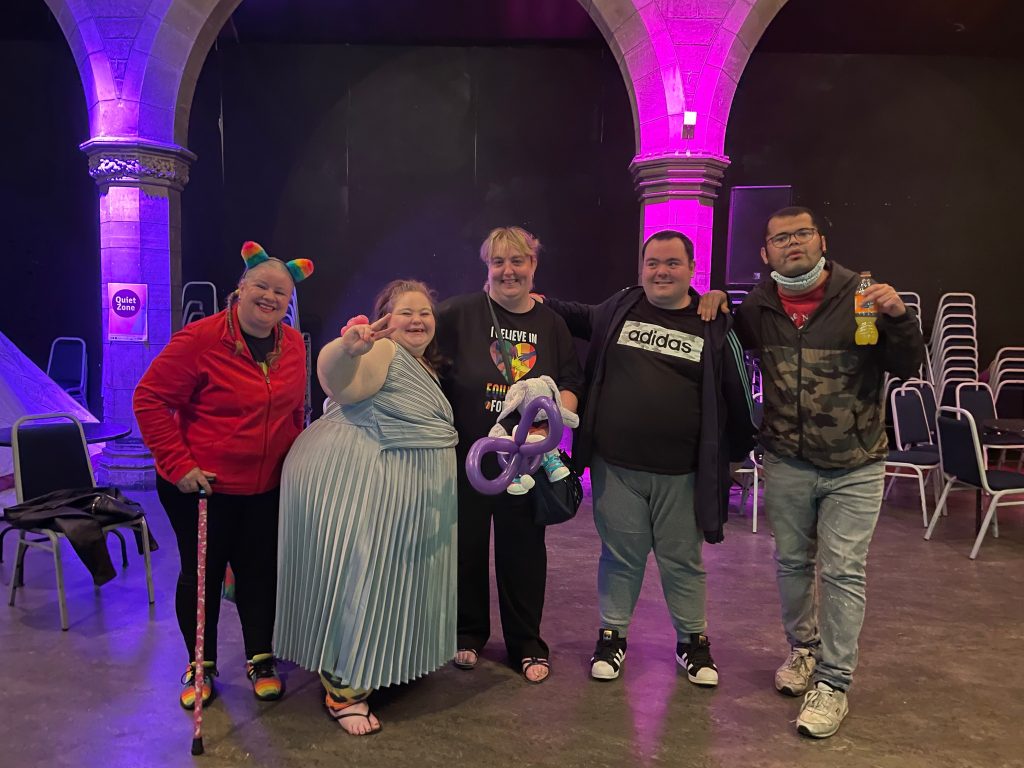
What would you like readers to know about neurodiversity?
Isla: We’re not different from other people. We have struggles in that just because we may not look disabled doesn’t mean that we aren’t. I want everyone to know that we’re good people. I think people could support us by making sure there is access to training around autism.
Jodi: Neurodiversity is widely misunderstood. Many hear the word “Neurodiverse” and
immediately jump to stereotypes. They forget that we’re people. Humans who just happen
to have struggles and needs that are different to the status quo. We can succeed (and we
are) – Neurodiverse-friendly environment? Check. Accommodations. Check. Watch us
flourish when we feel included, respected and valued in a space where we can show you our
full potential.
Natalie: Our brains might work differently but we still want the same things as any human – friends, social spaces, respect and choices.
